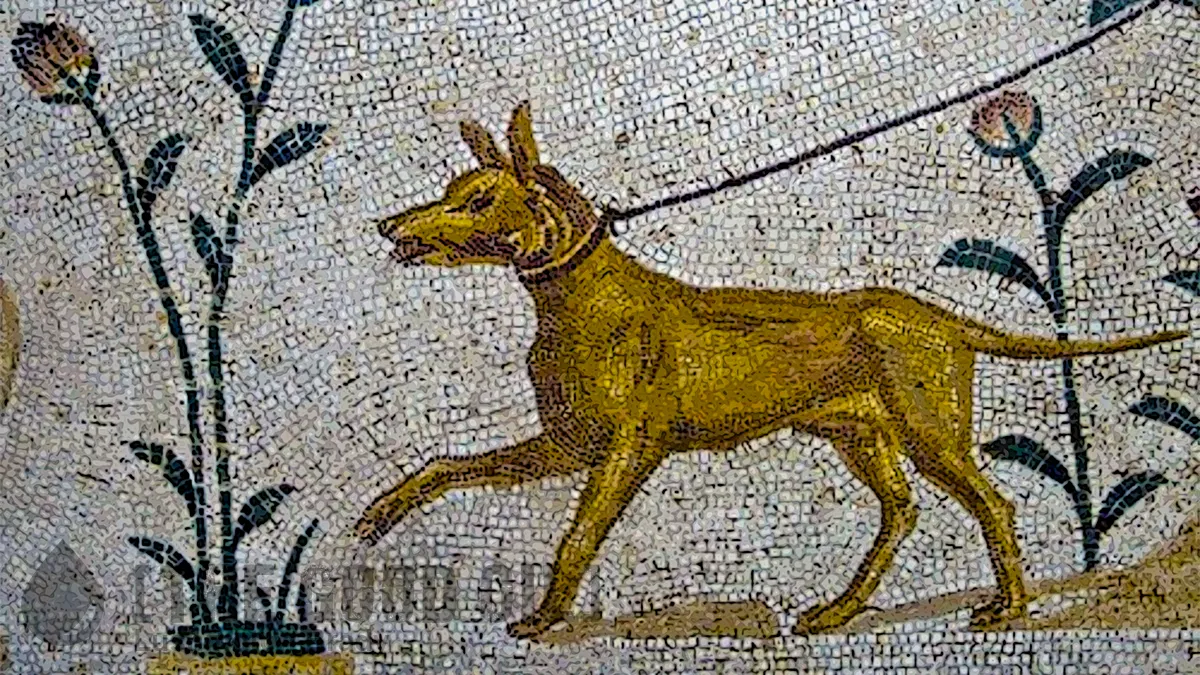Table of Contents
As I wrote recently, it’s a mistake to imagine that people from the Mediaeval or Classical times were ‘just like us’. Even just a few centuries ago, people’s worldviews and ways of thinking could be quite alien to our own.
For all that, though, human nature is human nature. There are some more-or-less constants to the human experience.
Not least the attachment we develop for our animal companions.
Dogs, in particular, have a way of developing emotional bonds with their human owners that can be as strong as we feel for our human family. At least, in the Western mind. Other cultures have much less fellow-feeling for dogs; some, literally violent antipathy. But, since at least Roman times, some of us have felt such deep attachment to dogs that grief at the ends of their short lives is as strong a passion as felt for human loved ones.
How do we know this? Because, across the gulf of millennia, ancient Greeks and Romans tell us so in the epitaphs they left for their departed and beloved pets.
I am in tears, while carrying you to your last resting place as much as I rejoiced when bringing you home in my own hands fifteen years ago, goes one Roman epitaph.
In an age before pet cemeteries, Greek and Romans would bury their pets along the roadside in marked graves like this one – a mournful gesture they did not take lightly.
One such Greek epitaph reads: Thou who passest on this path, If haply thou dost mark this monument, Laugh not, I pray thee, though it is a dog’s grave. Tears fell for me, and the dust was heaped above me by a master’s hand.
Another Roman inscription reads:
“My eyes were wet with tears, our little dog, when I bore thee (to the grave)... So, Patricus, never again shall thou give me a thousand kisses. Never canst thou be contentedly in my lap. In sadness have I buried thee, and thou deservist. In a resting place of marble, I have put thee for all time by the side of my shade. In thy qualities, sagacious thou wert like a human being. Ah, me! What a loved companion have we lost!"
A marble stele from Italy, from about 150–200 AD, refers to their departed canine as a ‘foster child’.
In Termessos, a city founded by Alexander in what is now Turkey, the inscription on a sarcophagus names both dog and grieving mistress. “This is the tomb of the dog, Stephanos, who perished, Whom Rhodope shed tears for and buried like a human. I am the dog Stephanos, and Rhodope set up a tomb for me.”
“[Myia] never barked without reason, but now he is silent.”
This dog’s owner offers simple yet powerful words for his pet, addressing him as one might an equal.
“Here the stone says it holds the white dog from Melita, the most faithful guardian of Eumelus; Bull they called him while he was yet alive; but now his voice is prisoned in the silent pathways of night.”
For Eumelus, his deceased pet Melita was clearly more than just an animal, but rather a creature with a soul that’s slipped beyond to a realm which can only be described in poetic terms.
Roman poet Martial (38–40 AD to 102–104 AD) wrote 12 books of over 1500 epigrams. Including this elegy for the dog of one Publius.
Issa’s more pert than Lesbia’s sparrow love, Purer than kisses of a turtle-dove, More sweet than hundred maidens rolled in one, Rarer than wealthy India’s precious stone. She is the pet of Publius, Issa dear; She whines, a human voice you seem to hear.
It wasn’t just dogs ancient people grieved for. Fittingly in Egypt, cats were particularly venerated and the death of the family moggy plunged the whole household into mourning. The family would shave their eyebrows: an ancient sign of mourning. The period of mourning ended when their eyebrows grew back. Cats were also mummified.
Keeping a cat in the house was considered a way of attracting good luck and warding off evil spirits and the death of a cat was considered a significant loss. Oddly, though, for all their feeling for cats, Ancient Egyptians did not name their pets. They referred to their cats simply by the Egyptian word for cat: miu.







